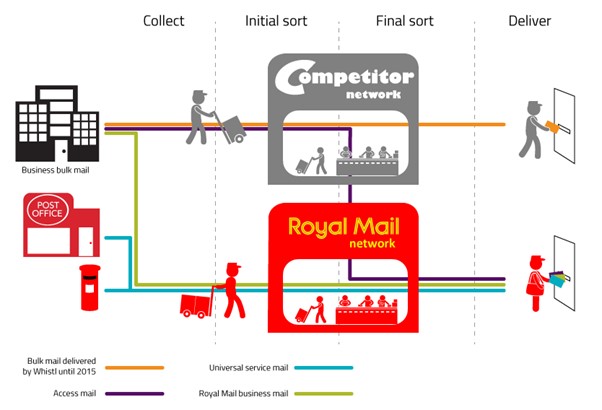
The Supreme Court has refused Royal Mail’s request to appeal against Ofcom’s 2018 decision to fine it £50 million for breaching competition law.
The Supreme Court’s decision concludes the appeal process, after Royal Mail was unsuccessful at both the Competition Appeal Tribunal and Court of Appeal. The company must now pay the £50m fine to Ofcom, plus interest, and our legal costs. The money will be passed on to HM Treasury.
We welcome the Court's decision. All companies must play by the rules, and Royal Mail had a special responsibility to ensure its behaviour was not anti-competitive – its actions were unacceptable.
We hope that our fine, which has been upheld in full by the courts, will ensure that Royal Mail and other powerful companies take their legal duties very seriously.
Ian Strawhorne, Interim Director of Enforcement at Ofcom
The case
In 2018, Ofcom fined Royal Mail £50m for a serious breach of competition law, after the company abused its dominant position by discriminating against its only major competitor delivering letters.
The penalty followed an investigation into a complaint, made to Ofcom by Whistl (one of Royal Mail’s wholesale customers). The complaint was about changes Royal Mail made to its wholesale customers' contracts in early 2014, including wholesale price increases it was introducing.
At the time, Whistl was expanding its business to compete directly with Royal Mail by delivering business letters (known as bulk mail) to addresses in certain parts of the UK – becoming the first company to challenge Royal Mail’s monopoly in the large-scale delivery of bulk mail.
The 2014 wholesale price increases meant that any of Royal Mail’s wholesale customers seeking to compete with it by delivering letters in some parts of the country, as Whistl was, would have to pay higher prices in the remaining areas – where it used Royal Mail for delivery.
Following notification of these new prices, Whistl suspended plans to extend delivery services to new areas.
Our investigation found Royal Mail’s actions amounted to anti-competitive discrimination against customers, such as Whistl, who sought to deliver bulk mail.
Notes
- Different types of postal delivery:

